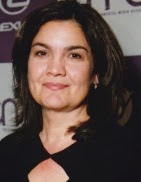The work is both witty and poetic; brilliantly illustrating Gardley's unique talent and cementing his position as one of the most compelling young playwrights in the country.
I was fortunate enough to get an interview with Gardley, who shared some insight into his process, inspiration, and how his time at Playwrights Foundation impacted him as a playwright.
Rachel Finkelstein: Thank you for speaking with me, and congratulations on the Glickman Award! I know that you're fascinated with parts of American history that tend to drift away from common discourse, and this work definitely calls to that. How did you come upon this subject, and what drove you to write on it?
 |
| Marcus Gardley |
Marcus Gardley: My first introduction to this period and the system of placage In New Orleans occurred when I read the book and saw the movie Feast of all Saints by Anne Rice. I was fascinated by the role the African-American women played in society and wondered if they had any connection to the Civil Rights movement. I knew that Homer Plessy (of Plessy v Ferguson) was Creole and born in New Orleans and so I immediately wondered if these women were his grandmothers and therefore apart of the beginning lineage of civil rights in this country. What I discovered once I read several history books was that these women fought for their own rights as free colored women as well. Many of them were very wealthy, powerful and controlled much of New Orleans at the time. What drove me to write about them was the fact that so few people had heard about them or knew anything about this period. I wanted to give audiences a glimpse into this pivotal moment in our country's history in which racial dynamics, class and gender were just the opposite as most people would assume. This to me, is a prime example of how histories have been take from people and buried. My passion is for the stage and for archeology. We need to know our histories and we need to embrace our past in order to understand who we are as citizens of the United States.
RF: In what ways did you go about researching and understanding the environment of New Orleans following the period of French rule?
MG: I read every book I could get my hands on but I also spent a lot of time in New Orleans. One of the most incredible things about this city is that the inhabitants know, cherish and revel in their history. All of the questions that I needed answered were there. A lot of the buildings from the period were still standing, even Katrina could not wash away the indelible marker of history in a city so grand, so proud that it reeks of the past. I visited several mom and pop book stores in the French Quarter and befriend the owners and they shared 'books from the back room.' They gave me the 'real' history, which is what I put on stage.
RF: I love that you're striving to produce more roles for African American women -- you've mentioned elsewhere that this play is the beginning of your work to do that. Do you have anything in the works that you would be willing to share?
MG: I am working on a musical that has an entirely African American cast. I can't tell you what its about because its still cooking and a good cook won't tell you what's in their food until they've tasted it. But I will tell you the piece is about African Queens.
RF: Thanks for the sneak peek! You've had multiple plays developed in Bay Area Playwrights Festival and some of our other programs -- how did your experience here impact your work and process as a playwright?
MG: I actually can't imagine my career at all without the Bay Area Playwrights Festival. Amy Mueller and Playwrights Foundation gave me my first shot as a writer, while I was still in grad school and since that time I have developed most of my work here. I consider myself a Bay Area playwright. I will always be a Bay Area playwright. I learned a lot about craft, process and collaboration by working with the Bay Area Playwrights Foundation and many of their programs such as Rough Reading Series, Des Voix Festival and the New Play Institute.
RF: We are proud to count you as an alumni! Overall, what most influences you as a writer?
MG: I think my major influence as a writer would be nature. There is so much to learn from the land which nurtures us. There is wisdom in the wind, true serenity beneath trees, and healing in the water.
RF: Beautiful. Finally, Is there anything you've always wanted to discuss in an interview that you haven't had a chance to?
MG: No, I usually feel like most interviews cover it all.
RF: Glad to hear! Thank you so much for your time, and congratulations again on the award!
Gardley joins Aaron Loeb and Christopher Chen as the third consecutive Playwrights Foundation Alumni to win the Glickman Award. New PF Resident Playwright Kate E. Ryan's play Hundred Days was also a runner-up for this year's Glickman!
Read more about Marcus Gardley and the Glickman Award at Theatre Bay Area








